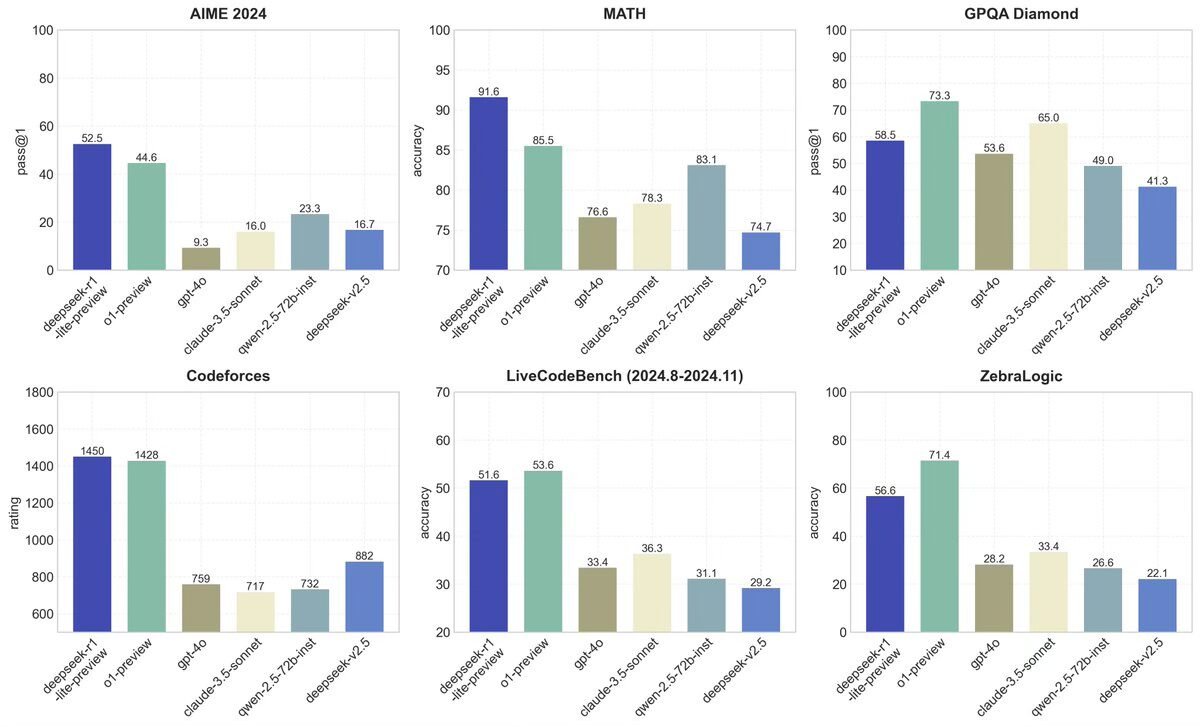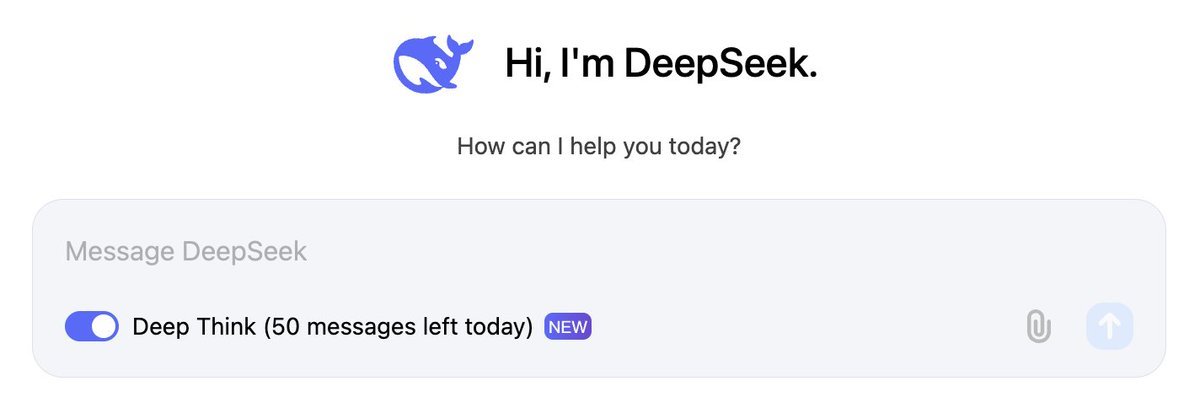The artificial intelligence landscape has just seen a new contender rise to prominence. China’s Deepseek AI has introduced its latest model, R1-Lite, and the results are turning heads. It’s not just a strong competitor—it has already matched OpenAI’s o1-preview model and even outperformed it on specific math and coding benchmarks. This accomplishment is particularly impressive, considering it comes just two months after OpenAI’s o1 release.
Let’s dive into the details.
A New AI Contender: Deepseek’s R1-Lite
Deepseek’s R1-Lite model offers some unique features that distinguish it from other cutting-edge AI systems. Among its most notable aspects:
- Open Access for Testing
Deepseek has made R1-Lite accessible via free web chat on their website. This availability allows anyone to explore its capabilities firsthand, a move that demonstrates their confidence in the technology. - Transparent Chain-of-Thought
Unlike OpenAI, which provides users with summaries of its reasoning process, Deepseek enables users to see the complete chain-of-thought behind its outputs. This transparency could prove to be a game-changer, offering unparalleled insight into how AI arrives at its conclusions. - Upcoming Open-Source Release
The full version of the R1 model is expected to be released as open-source soon. If delivered, this would provide developers and researchers worldwide with the opportunity to customize and improve the model, especially its chain-of-thought reasoning.

Who Is Deepseek?
Deepseek might not yet enjoy the global recognition of AI powerhouses like OpenAI, Anthropic, or DeepMind, but it’s far from an underdog. Here’s what we know about the company:
- Origins in Quantitative Trading
Deepseek evolved from High Flyer Capital Management, a quantitative trading fund managing $8 billion. This financial background has provided them with a robust mathematical foundation and significant resources to invest in AI development. - Elite Talent Pool
Their team boasts Math Olympiad gold medalists and top-tier coders. This level of expertise is a strong competitive advantage in areas like complex reasoning and coding benchmarks. - Government Influence
Industry insiders suggest that Deepseek’s pivot to AI was partly encouraged by the Chinese government, with a focus on creating technology that benefits society. - Massive Computational Power
Reports indicate that Deepseek has access to over 50,000 H100 chips, giving them the hardware necessary to train and deploy highly advanced AI models.
Why Open-Sourcing R1 Matters
If Deepseek follows through on its promise to open-source the R1 model, it could mark a turning point for the AI industry. Open-source availability would allow firms and researchers to:
- Enhance Chain-of-Thought Reasoning
By critiquing and improving the AI’s reasoning process, the community could help create models capable of even more advanced and accurate thinking. - Increase Accessibility
Open-source models empower smaller firms and developers, leveling the playing field in the AI race. - Foster Innovation
With a model as advanced as R1 openly available, the pace of innovation in AI could accelerate dramatically.
The Inference Time Scaling Race
Deepseek’s success underscores the start of a new race in AI development: one focused on inference time scaling. This trend emphasizes not just the size and power of models but also their real-time reasoning abilities. By prioritizing transparency and improving reasoning processes, Deepseek and its competitors are driving advancements that ultimately benefit users.
The Bottom Line
Deepseek’s rapid rise challenges the dominance of Western AI labs, bringing new energy and competition to the field. With transparent reasoning, impressive performance benchmarks, and the promise of an open-source release, the R1 model represents more than a technical achievement—it’s a signal of what the future of AI could look like.
As the scaling race heats up, one thing is clear: the biggest winners will be the users.
Read related articles in our Blog:

